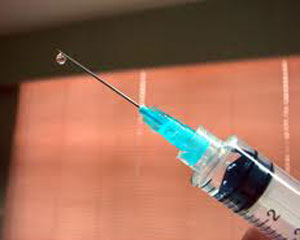
ZIMBABWE is set to achieve a giant leap in the fight against cervical cancer following the recent approval of the human papillomavirus (HPV) vaccine, a move which will see teenage girls receiving vaccination against the deadly disease.
By Wellington Zimbowa
Director of Epidemiology and Disease Control in the Ministry of Health and Child Welfare, Portia Manangazira said a pilot programme is set to be rolled out soon in Matabeleland and Mashonaland targeting girls from 10 to 13 years, ahead of the full programme next year.
“I am pleased that government has now availed funding for the cancer vaccine and approved its introduction,” she said.
“The programme will be fully rolled out in 2014 but for now, we are working on how best to prepare for this important national exercise, hence two health centres, one in Marondera and one in Gwanda will be identified for trials.”
Manangazira said upon the full introduction of the programme, vaccination will start from girls aged between nine to 13 years. She was speaking on the sidelines of a cancer discussion forum at the Book Café organised by Tanyaradzwa Cancer Trust.
Manangazira added that cervical cancer, which is the second cause of high mortality after Kaposi’s sarcoma — another type of cancer — is highly transmitted through sexual intercourse, hence investing in preventative measures targeting young girls was prudent.
“Cervical cancer has some common features with HIV and Aids in that it is highly transmitted through unprotected sex with an infected partner and it lies for years without one knowing.
- Songbird NaGuG relives diaspora experience
- I sing for hope: Jamanda
- Closed firms owe BCC over $59,5m
- Kadoma woman’s agony of battling three diseases
Keep Reading
“Vaccinating young girls is strategic in that sexual debut is unlikely at that time and their immune [system] will be very strong and given that the scourge has no cure yet, this is a positive stride,” she said.
She also said while the government will be funding the exercise, Unicef will be doing the procurement.
Hosted by Tanyaradzwa Cancer Trust, the discussion brought together medical experts Mike Chirenje and doctors Sunanda Rayv and Anna Nyakabau.
It ran under the theme Cervical Cancer: Awareness & Survival in an effort to raise awareness of the need for early diagnosis and counselling especially targeting ordinary women who usually are at the periphery of getting information.
Meanwhile, the Finance ministry this week released US$480 000 for the expansion of storage facilities at Parirenyatwa hospital as the nation moves towards introducing rota virus and HPV vaccines.
ALL WOMEN TO BE INFORMED ABOUT SCREENING PROCEDURES
Talent Yakado, founder of Tanyaradzwa Cancer Trust, herself a cervical cancer survivor, gave a chilling account of how she survived cancer and bemoaned the ignorance among ordinary women about the need for cancer screening and the prohibitive amount being charged for cancer screening.
“There is need to ensure that each woman on the streets knows about cancer screening and my organisation will step-up efforts to lobby government about this critical issue.
“The charges are also prohibitive for the ordinary woman and in my case, I only managed to go for screening and treatment through help by my boss since, as a waitress I could not afford it,” she said. The 34-year-old mother of three said it was only last year at the birth of her third child that she was found to have HPV strains.
She had to go through the agony of sourcing the consultation and examination fees which were close to US$500, only to be saved by her employer, hence her pledge to lobby for a revision of the policy.
Her sentiments were echoed by the medical experts who noted the public health system leaves much to be desired in the fight against the cancer scourge.











